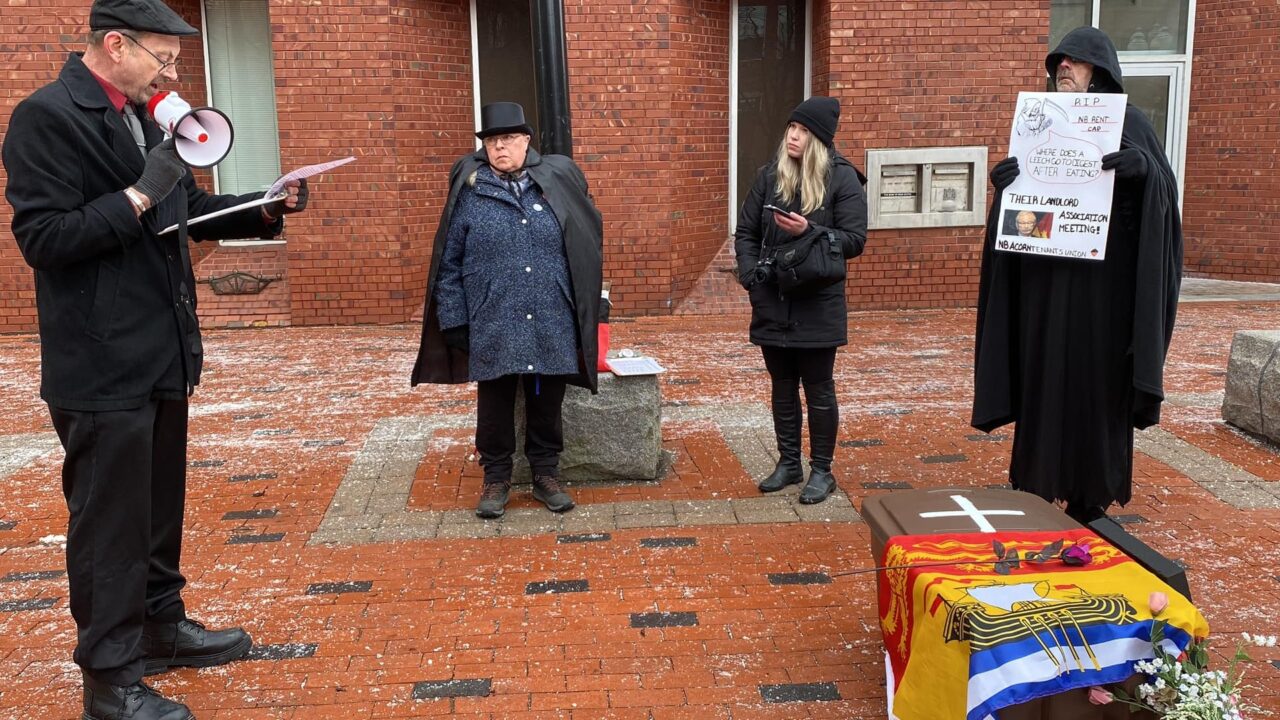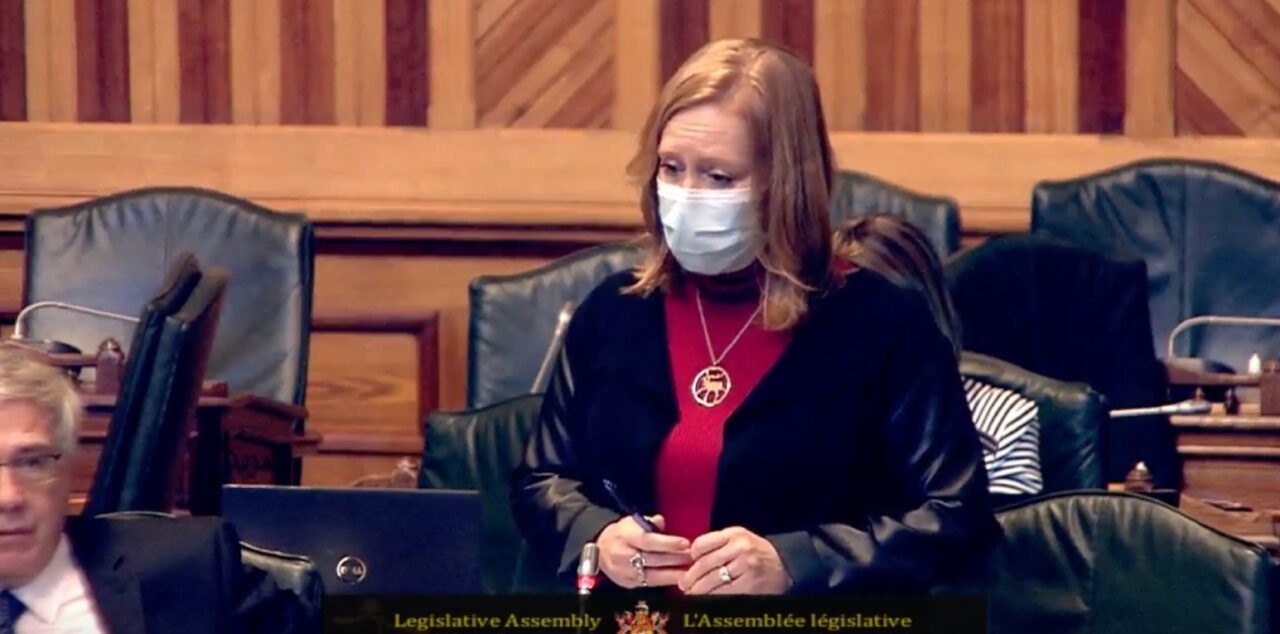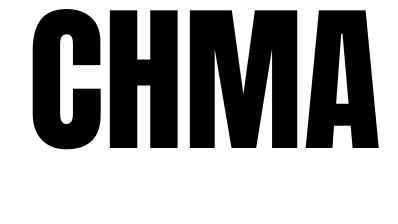
New Brunswick’s short-lived rent cap may end up haunting the government of Premier Blaine Higgs.
ACORN NB, a group that advocates for tenants’ rights, held a “mock funeral” for the 3.8 per cent cap this week in downtown Moncton, complete with a faux-coffin and mourners dressed in black.
Listen to the report that aired on CHMA FM on Thursday, January 5, 2023:
“The rent cap was a dearly loved housing policy for working-class tenants across the province, providing much-needed relief from rent gouging,” ACORN NB co-chair Peter Jongeneelen said in a eulogy for the policy.
Following widespread reports of massive rent increases, the Higgs government introduced a budget in March 2022 that included the temporary rent cap, retroactive to January. The policy expired at midnight on New Year’s Eve.
Jongeneelen said rent control prevented his own landlord from raising his rent by 11 per cent.
He called the government’s decision to end rent control a “slap in the face” for low- and moderate-income tenants, especially considering recent tax cuts for landlords.
Last year, the provincial government reduced property taxes on non-owner-occupied housing by 50 per cent. For years, landlords have insisted that New Brunswick’s so-called “double tax” on rental properties inhibits the construction of apartments, limiting supply and driving up prices.

In an email, the head of New Brunswick’s association of landlords said it’s a “fallacy” to claim that landlords will save money because of property tax cuts, once surging property values are factored into the equation.
“Property taxes are [a] combination of assessments multiplied by property tax rates,” said Willy Scholten, president of the NB Apartment Owners Association. “Assessments increased more than tax rates decreased in 2022 [and] created an increase in taxes, not savings for landlords.”
But Jongeneelen also pointed to the Higgs government’s recent changes to the New Brunswick Income Tax Act.
That bill was criticized for benefiting people with incomes above $250,000 while providing no savings for people whose incomes fall below $45,000.
The landlords’ association has pressured the Higgs government to resist demands for rent control, saying it will dampen the housing supply. “We believe that having overall rent controls will impact the addition of rental units, as has been historically the case,” he said.
Minister of Service New Brunswick Jill Green, whose portfolio includes housing, has repeatedly echoed the landlords’ association, stating that rent caps dissuade development.

In an episode that embarrassed the provincial government late last year, Green mistakenly attributed that view to economist Richard Saillant, who later corrected her, saying he doesn’t oppose the policy.
UNB housing researcher Julia Woodhall-Melnik has also argued that rent caps like the one implemented in New Brunswick last year haven’t been shown to affect supply.
Jongeneelen encouraged tenants to reach out to ACORN NB if they’re having problems with maintenance or facing big rent increases.
“We’re in your corner, we’re here to help you as much as we can, but we can’t do it alone,” he said.
CHMA reached out to the provincial government for comment. Here’s the full statement from government spokesperson Bruce Macfarlane:
“Please note the rent cap was first announced on March 22, 2022, and came into effect upon Royal Assent on June 10, 2022. The RTT marketing campaign aimed to inform tenants of their rights and where to go for help began in December 2021.
“Once a tenant applies to have a rent increase notice reviewed, the Residential Tenancies Tribunal will review the new rent amount to ensure it is within market value comparable to rental amounts in similar units in the same building and neighbourhood. This includes the size and condition of the unit, number of rooms and bathrooms, amenities included in the rent, age of the building and recent renovations, if applicable. New rent amounts found to be outside of market value will be denied.
“Legislation came into effect on December 16, 2022, that allows new rent amounts that are significant and within market value to be phased in over 2 to 3 years. Also, tenants now have 60 days, instead of 30, after being served a notice of rent increase to apply for assistance from the Residential Tenancies Tribunal. Extending the application period for rental reviews to 60 days allows more time for tenants to seek help to ensure the increase was correctly served, meets all legislative requirements and is within market value. The Application for Assistance can be accessed online www.snb.ca/irent, by calling 1-888-762-8600 or by emailing irent@snb.ca.”
